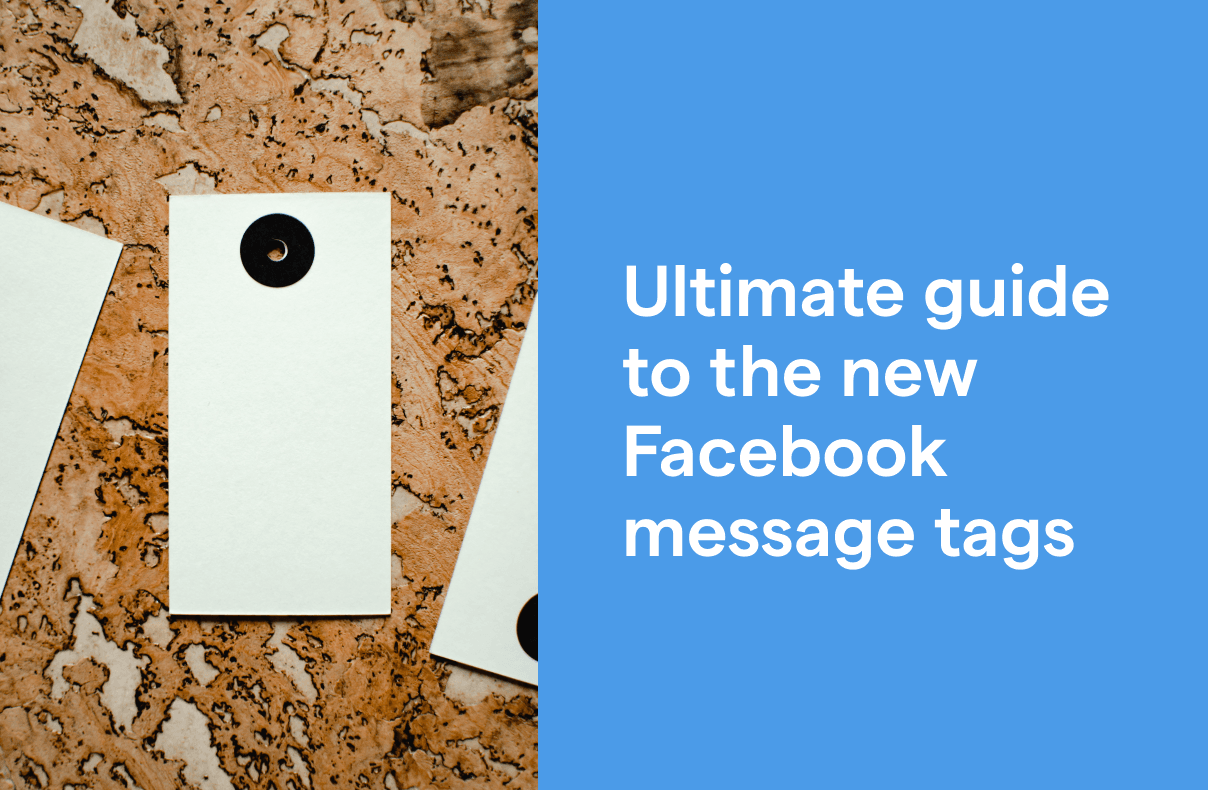Ultimate guide to the new Facebook message tags
Receiving spam messages from unknown Facebook pages? Good news! Recently, Facebook updated its rules on push messages and included message tags for better user experience. As a result, this prevents excessive promotions and spam messages. Here comes the ultimate guide to the new Facebook message tags and new Messenger rules!
Using Facebook Messenger for your business but also talking to customers on other channels? Combine all on SleekFlow's omnichannel inbox today.
Introduction to Facebook Message Tags
By now you’ve probably heard a lot about Facebook Shops, a mobile-first shopping experience that Mark Zuckerberg unveiled on his Facebook Live in May. That has got us wondering – with 1.96 billion daily active users on Facebook, will Facebook Shops serve as a true social commerce solution for businesses all around the world and redefine our shopping habits or is this all too good to be true? Here are 7 things you might not know about Facebook Shops:
Before, Facebook Pages were only allowed to send promotional messages within the 24-hour window. But, the Facebook Messenger rules have been updated from “24+1” to “24”. In other words, Facebook’s “24+1” rule on standard messages no longer exists!
Next, Subscription Messaging will only be allowed under the “News” category. Also, the number of Message Tags for Facebook has decreased from 16 to 4. These rule changes are important for online businesses! Especially for those that focus heavily on marketing and engagement on Facebook.
So, understanding and leveraging the new Facebook messaging rules would help your business to stand out. It would also strengthen your competitive edge in the highly digital age.
Push Messages
Essentially, Push Messages on Facebook are divided into three categories: standard message, subscription message and sponsored message. Thus, each type of message is of a different nature and are under different Facebook regulations. So, how are they different from one another?
Standard Messages: from “24+1” to “24”
Before, Facebook Pages’ standard messages followed the “24+1” rule. As such, businesses can send 1 more message to customers if they did not receive any response within the past 24 hours. But, if there’s still no response, the business cannot send any more messages to that customer. Currently, standard messages follow the “24” rule. This means that businesses no longer have an “extra chance” for promotion after receiving no response from the customer after 24 hours. Here are some ways you can leverage the “24” rule to continue engaging with customers.
Use Click-to-Messenger Ads, users will be redirected to the chatbox once they click on the ads
Adding Messenger Plug-in on your website for website visitors to enter Messenger chat
Using Sponsored Messages, as they are exempted from the 24-hour rule
Set up Messenger’s appointment function and schedule users to enter Messenger chat
Use the m.me link
SleekFlow Live Chat includes Messenger as one of the channels. Install it for free on your website today.
Subscription Messages: no more permission for ordinary Facebook Messages
Unlike Standard Messages, Subscription Messages are not bound the “24+1” rule. But, it’s getting harder for Facebook Pages to gain permission for Subscription Messaging.
Starting from 2020, only messages under the “News” category can use Subscription Messaging. Hence, previously granted permissions for messages of other categories will no longer be valid.
Thus, categories such as “Productivity” and ”Personal Tracking” are no longer eligible for Subscription Messaging. In short, it is much harder for business to promote using Subscription Messages from now on.
Facebook Sponsored Messages
Paid Facebook Ads
Can include promotional content
Not limited by the 24-hour rule
But, there are no specific changes to Sponsored Messages on the previous Facebook Messaging rule revision.
What are Facebook Message Tags?
Before diving into the new rule for Message Tags, let’s check out what exactly is a message tag on Facebook.
Essentially, message tags are attached to Facebook messages. They allow sending important and relevant 1:1 updates to users outside the standard 24-hour messaging window. Also, they act as a label to let Facebook know what kind of message it is.
Therefore, these message tags cannot be used for promotional purposes. For instance, you cannot attach tags on deals, offers, coupons and discount related messages.
Then you may wonder, is it not useful after all?
Not really! Message tags are still a good tool for you to engage with your customers, just that not on the promotional aspect.
How to use Facebook Message Tags: from “16” to “4”
Currently, Facebook only supports the following 4 tags:
Confirmed Event Update (Confirmed_Event_Update)
Confirm scheduled appointments or events
Remind customers about an upcoming enrolled event
Notify customers with new event arrangements
Post Purchase Update (Post_Purchase_Update)
Send receipts
Update payment status
Update shipping status
Report emergency on purchases, for example, unsuccessful payment, delayed shipment
Account Update (Account_Update)
Show account application/update progress
Report suspicious activities
Human-Agent (Human_Agent)
Allow human agents to respond to user inquiries
NOT FOR CHATBOT
Allow a 7-day reply window (2021 Q2 newly launched!)
However, you cannot do the following using these 4 Facebook tags:
Promote content (e.g. deals, offers, coupons, discounts)
Send information regarding previous events
Send information on unenrolled events
Remind users of surveys, ratings, or voting
Cross-selling
Upselling
In conclusion, these tags offer greater flexibility with your communication and help with your follow-up on customer’s activities.
Also, along with a chatbot, you can contact your customers in a high-quality and timely manner. As such, automation on a messaging platform can help your business to respond in a more personalized way.
SleekFlow is a omnichannel software solution that helps businesses manage conversations on messaging apps through automation, campaigns and messaging. With SleekFlow, businesses can apply the automation function while using message tags. This way, various customer updates messages can be automatically via SleekFlow, making it more efficient for you to interact with your customers.
Interested to learn more? Check out our pricing plan or talk to one of our social commerce experts.
Further readings:
Share Article
